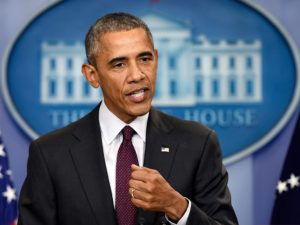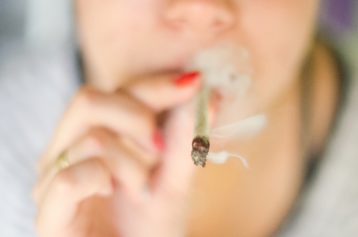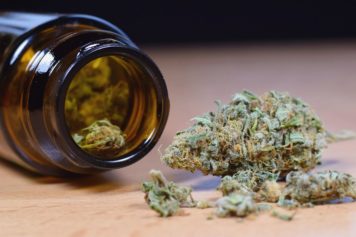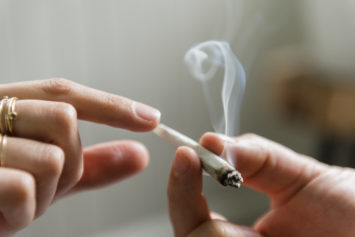
President Barack Obama. Photo by Susan Walsh/AP.
Should marijuana be legal in all 50 states? The topic of pot legalization has become a hot-button issue over the past few years, as pro-pot proponents and politicians alike weigh in on how the drug should be regulated, if at all.
In an interview with Rolling Stone published this week, President Barack Obama proposed a progressive approach to handling pot, suggesting the government treat marijuana use as a public-health issue, rather than a crime, like it does with tobacco and alcohol.
“Look, I’ve been very clear about my belief that we should try to discourage substance abuse,” Obama told the magazine in response to a question concerning the pitfalls of the War on Drugs. “And I am not somebody who believes that legalization is a panacea. But I do believe that treating this as a public-health issue, the same way we do with cigarettes or alcohol, is the much smarter way to deal with it.”
Noting his time in office is quickly coming to an end, the president acknowledged that he didn’t have the power to make major changes to the nation’s drug policy in the first place. He explained that such reforms are typically enacted through legislation or the U.S. Drug Enforcement Administration (DEA), not presidential mandates.
“As you might imagine, the DEA, whose job it is historically to enforce drug laws, is not always going to be on the cutting edge about these issues,” he said.
So far, over half the nation’s 50 states have legalized medical marijuana use. The 2016 presidential election brought Massachusetts, Maine, Arizona, California and Nevada into the mix as citizens voted to legalize recreational use of the drug. Pro-weed website The Cannabist reported that eight states and Washington, D.C., approved adult-use recreational marijuana, while 28 states have allowed medical marijuana programs.
Despite growing nationwide support of legal marijuana, anti-pot proponents have actively been bankrolling efforts to halt legalization. According to Atlanta Black Star, donors from the likes of billionaire casino owners, pharmaceutical companies and police groups raised roughly $6.6 million this year to keep legalization from happening. Yet still, pot advocates outraised their rivals by almost $23.4 million.
Throughout his second term, Obama remained largely on the fence regarding the issue of pot legalization. According to The Washington Post, his Justice Department created a policy explicitly allowing states to legalize the drug as they saw fit but made no effort to change the rigid federal marijuana laws.
Many have argued that leaving legalization up to the states also gives them the power to criminalize it as they see fit. Oftentimes, state drug laws disproportionately impact Black Americans and other minorities, who ultimately receive harsher punishments and longer jail sentences for the same drug offenses committed by their white counterparts.
“It’s untenable over the long term for the Justice Department or the DEA to be enforcing a patchwork of laws, where something that’s legal in one state could get you a 20-year prison sentence in another,” the president said. “So this is a debate that is now ripe.”
Obama acknowledged that his progressive stance on marijuana likely won’t change much right now but said he would become more vocal on the topic of legalization once he leaves the White House in January.
“Look, I am now very much in lame-duck status,” he said. “And I will have the opportunity as a private citizen to describe where I think we need to go.”


